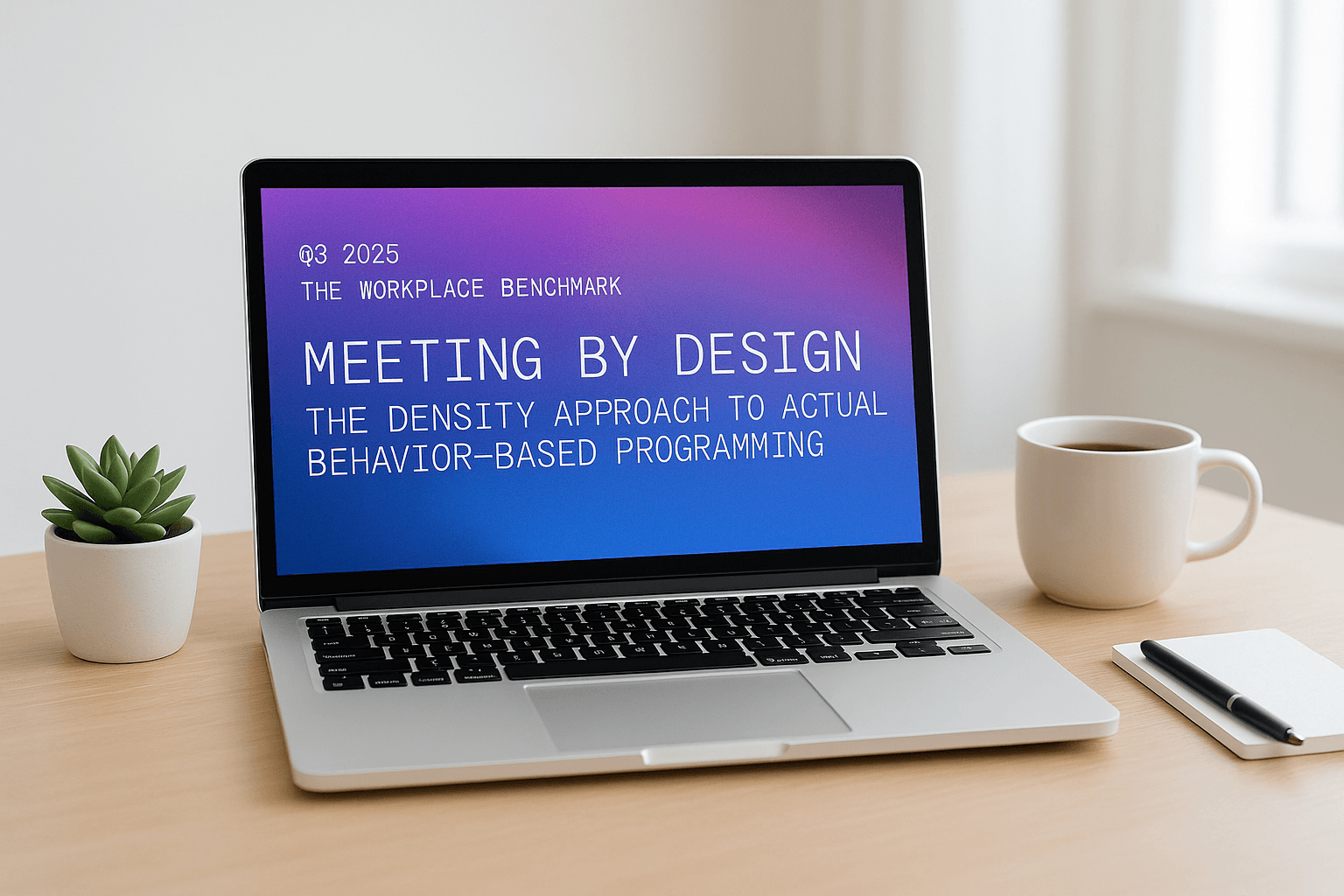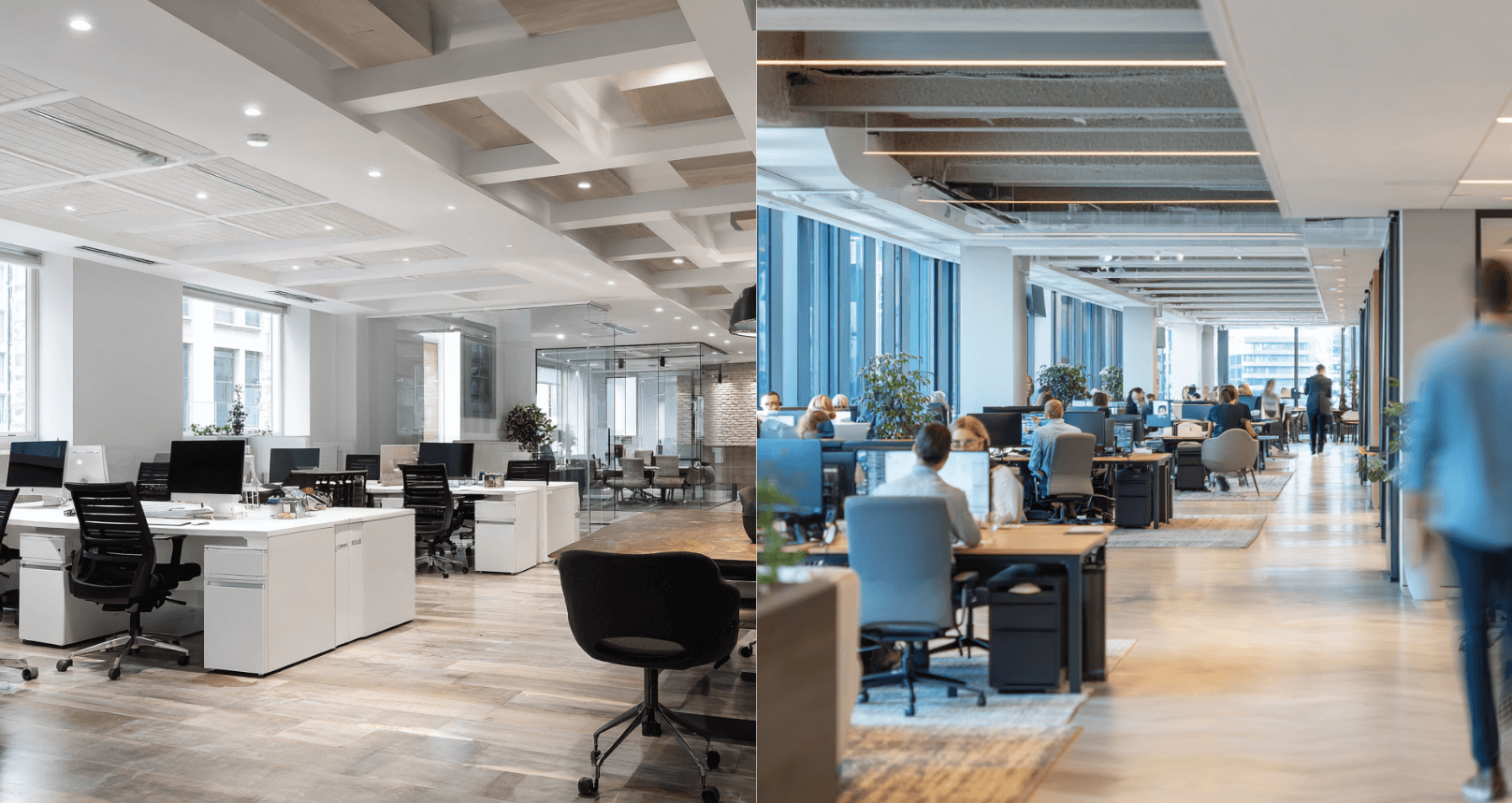Live meetings only: Our office’s on-demand meeting room experiment
At Density's San Francisco office, we launched a bold experiment: no more advance room bookings.

Do you remember the world before cell phones? We would make plans to meet at a specific time and place. When that failed, chaos. Now that we have the tools to react to the reality of our unpredictable lives, we can easily meet up last minute and change plans on a dime.
Meeting rooms have not caught up to this reality. However, a world of meeting rooms booked in advance assumes:
- Meetings start and end on time
- People release the room when a meeting is canceled or ends early
- The room empties out right when the meeting ends
- People always know in advance when they will need to meet
- Everyone uses the system
These things are all false.
Meeting rooms are increasingly used on-demand: Density Advisory found that 65% of meeting use is drop-ins.
But what workplaces have been lacking is good tools to help navigate the on-demand office. Density Live is a real-time map of available spaces that makes finding space a breeze. That was all we needed to go all-in on on-demand.
The experiment
At our San Francisco office, we launched a bold experiment: no more advance room bookings (okay, we kept a few exceptions for events and interviews - we're not complete rebels). Instead, everyone uses Density Live to find an available space when they need it.
The reaction
When we unveiled the experiment, people were less than thrilled:
“I think this will be very uncomfortable. I hate change.”
“Usually, I wander around the office looking for space and end up back at my desk. Won’t this make that worse?”
Hey, at least we didn’t take away their Wifi this time.
The results
People found the space they needed.
So what happened? It turned out people were actually MORE likely to say they found the space they needed for meetings during the experiment than they were before (83% agree vs. 73% agree).
This is what we found out from a weekly survey employees at the start of the experiment, and then on a weekly basis following that to capture their sentiment around finding space for meetings.

Meeting rooms were used more efficiently.
Because survey data can be prone to bias - who decides to respond to a survey, how they’re feeling at the time, and what they think we want to hear - we also turned to sensor data to get a more ground-truth view of what happened during the experiment.
Our office saw more efficient use of meeting space during the Live Meetings experiment, with one-person meetings dropping from 26% to 20% of total meeting room usage, a 22% decrease. Meanwhile, 4-6 person meetings grew from 17% to 23%.
While these changes are relatively small, they are a meaningful shift toward the behavior we hope for in the workplace - more face-to-face collaboration.

“This has been refreshing, actually.”
We captured qualitative data to hear how employees felt during the experiment. The mood lifted from the initial grumblings to downright good vibes:
“I haven't really experienced a difference in how quickly I can or can't find a room, which is surprising.”
“Changing behavior is difficult, but this could lead to better efficiencies.”
“This has been refreshing, actually.”
The takeaway: experiment no more
Live meetings is our status quo going forward - being flexible with office space helps us use our resources better without making work harder or less enjoyable. As offices keep changing, using on-demand systems makes our workspaces more responsive, more adaptable and more fun.
Learn more about Density Live or request a demo to see Density in action.
Key Takeaways

DisruptCRE founder shares how corporate real estate is changing
Companies are moving employees from underutilized offices into "space as a service” options with utilization data.
Watch now
Half of offices are empty but you still can’t find a meeting room
Employees waste up to 30 minutes a day looking for a meeting room to meet in workplaces.
Read moreMost recent

Meeting space playbook: programming ratios that really work
Forget static formulas. This new research-driven playbook shows how to use real behavior to right-size your office for today’s meetings.

Space waste: The industry’s naughty and nice list
Our sensors spilled the beans: What industry is winning, who's wasting and who's hogging your office real estate.
.png)
Improve your occupancy sensor RFP with our best practice guide
Discover essential questions to simplify your occupancy sensor RFP process and confidently choose the right vendor.
.png)
Room raiders: The office upsizing epidemic
Tiny teams hogging big rooms leave large groups stranded—welcome to the new war for meeting space!
Explore other Density Products
Atlas for Workplace
Insights for the workplace that help you cut costs and deliver better spaces.
Learn more